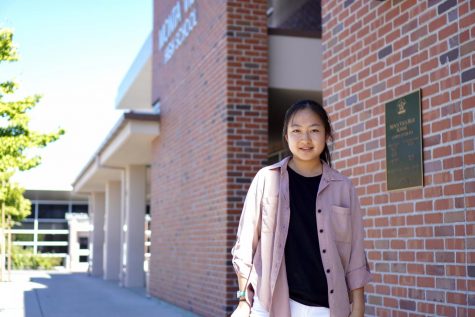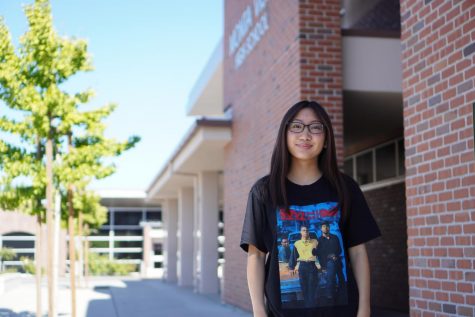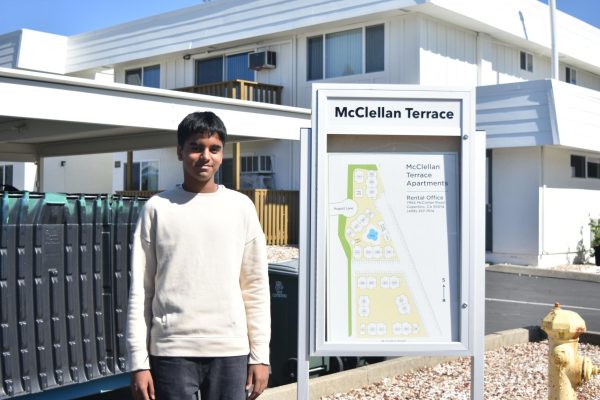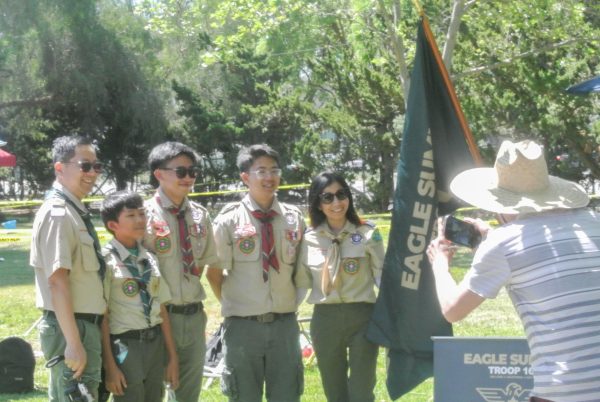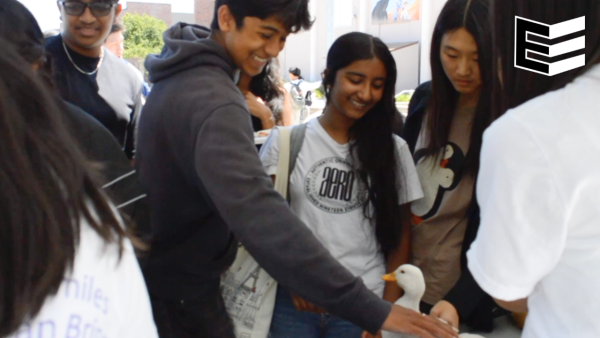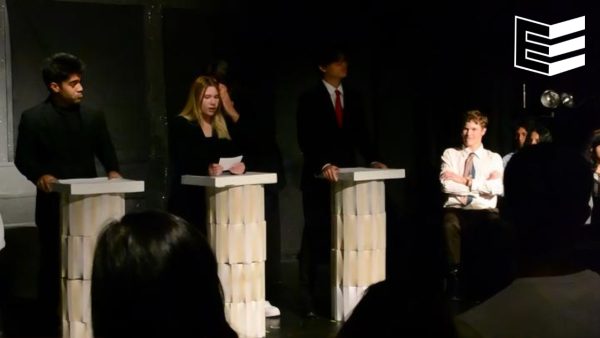Social media account details alleged sexual assault
Instagram posts cause stir in local community about district response to harassment claims

@fuhsd.expos.ed is an Instagram account that posts a story about One’s experience with sexual assault and the results of bringing the case to the district
A series of Instagram posts brought an alleged case of sexual assault in FUHSD to light on Jan. 9. The author of the posts and alleged victim, who refers to themself as “One,” took to the social media platform to inform readers of their experience. After their dissatisfaction with how the district handled their case, they made the account to help others with similar experiences.
One began a relationship during freshman year with the accused assaulter, referred to as “Two” in their story. Two weeks into the relationship, Two became increasingly “pushy,” pressuring One to perform sexual favors that they did not want to do. At one point in a bathroom on an FUHSD campus, even after One turned Two down repeatedly, they felt coerced into doing what made Two happy.
“I didn’t consent to these actions,” One said in an Instagram post. “I said ‘no’ several times, but Two had me trapped in a bathroom, blocking the door.”
Feeling manipulated by their partner, One became depressed and feared Two’s violent tendencies, which were described throughout One’s six posts. According to One, the relationship ended after One felt mentally and physically abused by Two, and One buried the incidents until they were later placed in classes together.
“I thought I could go on ignoring [Two] but it was a challenge,” One said in an Instagram post. “Just hearing Two speak from across the room and being in the same room as them brought back horrible memories and feelings I had worked so hard to get rid of.”
To their surprise, One’s Instagram account, @fuhsd.expos.ed, reached many people, most of whom left supportive comments and messages for One. Like their case, reports of sexual assault are not always directly passed on to the district, according to MVHS assistant principal Janice Chen. Instead, the process usually begins with one-on-one smaller interactions with an authority figure on campus who then reports the situation to the district.
“Maybe a student tells a student and then that student friend tells an adult or the student directly goes to an adult, whether that’s a teacher or a counselor,” Chen said. “But any adult on campus then must report it to administration right away and then that’s where we step in.”
Initially, One overlooked Two’s actions. As someone who has the tendency to attempt to maintain relationships, One persisted in trying to fix the situation. It wasn’t until they brought the case to the district in the early school year of 2018 that they felt they truly understood the gravity of the situation.
“I realized ‘Oh, he was doing some really messed up stuff to me’ that I didn’t even think about because I just tried to forget about every single thing that I ever did with him,” One said. “So, [the experience] was really eye opening, and it’s made me a bit more cautious of the relationships I have. I’m more alert for signals [and] warning signs.”
After One had shared their story on Instagram, a parent brought it to Associate Superintendent and Title IX coordinator Trudy Gross’s attention. The Title IX Amendment protects students from sexual harassment, discrimination and bullying.
To file a Title IX complaint, cases must be filed in written form less than six months from the alleged discrimination incident, unless the district superintendent allows an extension for reasonable cause. The compliance officer must begin an investigation within 10 business days after they receive the complaint. 60 days or less after the complaint was received, compliance coordinators like Gross issue a written decision.
However, like One, if the individual who filed the complaint is still not satisfied with the verdict, they can choose to file an appeal to the California Department of Education within 15 days after receiving the district’s verdict. In One’s case, the appeal was filed after this 15-day deadline, which is why this case had not progressed further despite One and their family’s dissatisfaction.
Compliance Coordinators such as Gross are required to investigate and take immediate action once knowledge of such Title IX violations surfaces. When reading through One’s posts, Gross realized that the story was about a sexual harassment case she had previously dealt with.
According to Gross, there was information missing from the post regarding where the case was sent, which One later realized. Originally, the family had sent the case to Gross, whose decision was to not take any further action; however, after hearing the decision, One and their family made an appeal to the state courts because they wanted to hear a second opinion.
“And unfortunately, that appeal was also not heard by the state,” Gross said. “So, there’s sort of two situations of feeling unresolved. One, you don’t agree with what the district decided, and two, you wanted a second opinion. And then that [second group] said, ‘We’re not reviewing it.’”
As a result of the state courts’ was not able to make an appeal, the case was closed. Following the investigation, Gross gave further discipline to the two individuals involved in the case, but only after learning that One was medically diagnosed with autism.
Throughout this whole process, One noted that the sexual assault was treated lightly compared to her previous experience in a bullying situation. After joking about harming a student online during their freshman year, the office sent One to a monitoring facility for 24 hours where they were forced to sleep overnight. As a 13-year-old, One recalled the experience as “horrifying,” especially because of comments that they had no intentions behind.
“[For the bullying incident, the district] contacted police and they put me away for 24 hours,” One said. “And then Two sexually harasses someone and [the district administrators] don’t even bat an eyelash.”
Gross explains that she had to consider multiple factors to make a decision to accommodate both sides of the case. Since sexual assault typically occurs without a witness, Gross relied on the statements coming from the complainant and the respondent, each with their own perspective of the situation.
“[Since cases like this] really are two people, we’re trying to make a good decision on behalf of both people, I try to balance that,” Gross said. “So it was ultimately my decision, and I do stand by that decision.”
Despite the outcome, Gross believes that speaking out about these experiences can be a beneficial opportunity to take further measures in preventing more cases of sexual offenses in the future.
“I wish that we didn’t have issues of sexual harassment, but we’re hearing about them in all walks of life, unfortunately,” Gross said. “I think the important thing is that people feel that they can report it, and that there can be a response.”
Agreeing with Gross about the importance of bringing sexual harassment to light, One says they think there’s a tendency to keep these cases quiet.
“If one [shooting] happened, that’s a bearing put on the name of the school like that’s unavoidable; people are going to know what happened,” One said. “Whereas, sexual harassment is easier to sweep under the rug.”
Gross understands that there may be students who would not trust the FUHSD Title IX system after hearing One’s story; however, she believes that students shouldn’t stop reporting cases in general. Though not every case works out the way everyone wants, she still hopes that students speak out because Gross wants to support these students.
“I don’t think that [the account] should impact other people talking,” Gross said. “If they feel that something has not been done appropriately to them, if someone you know has done something to them or they’re in an unhealthy relationship or whatever it might be, I hope that students will still come forward because we do have a process established, we do have a way of supporting students.”
As the Instagram account gained traction, multiple individuals reached out to One in hopes of reopening the case. However, One has turned down the offers.
“[My] main plan is [to] have my posts [make] a permanent mark on the situation, [put] it in writing and just [have] it be there for anyone to see, for anyone to know about it happening,” One said. “That’s the bad thing about trauma; if it happened to you and no one knows about it, you’re forced to carry that burden by yourself even with the support of family and friends. By putting it out there, I don’t have to carry the trauma by myself and that’s good enough for me honestly.”
